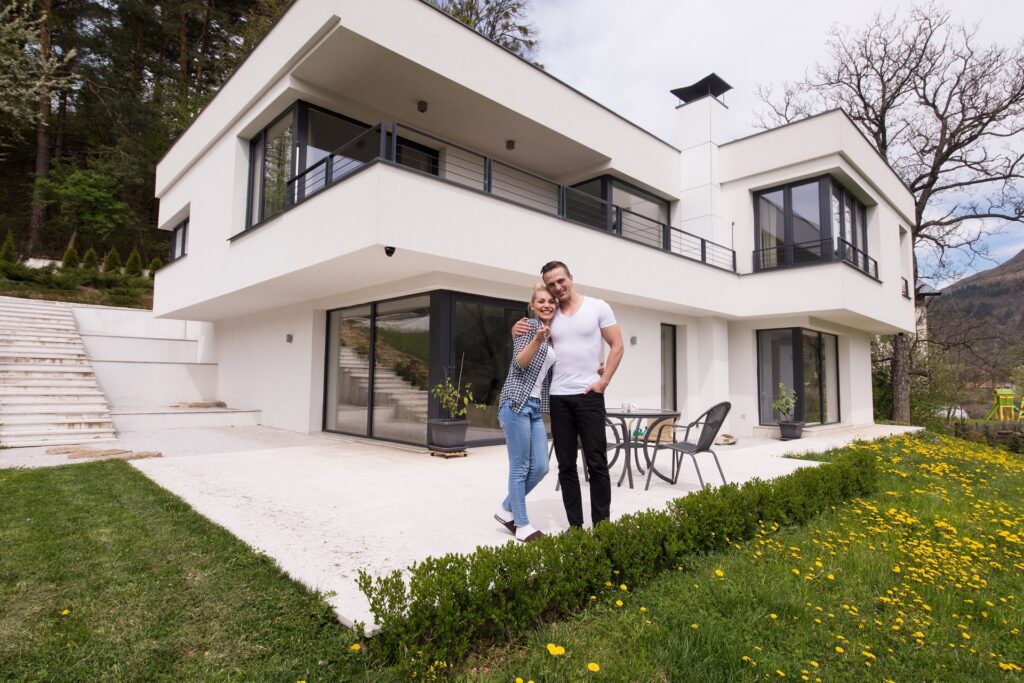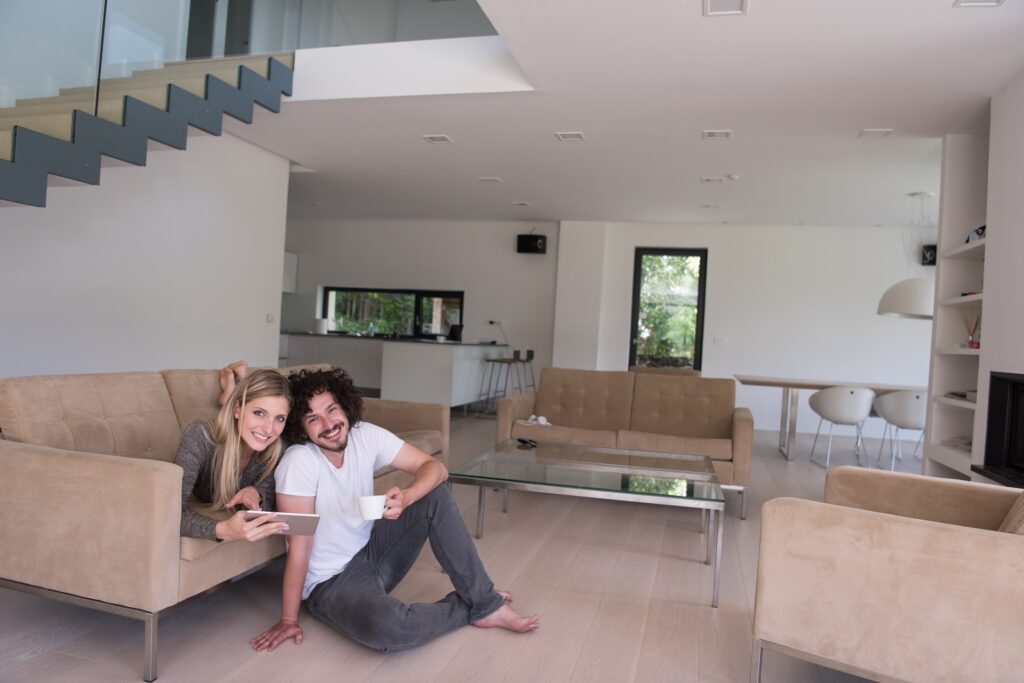In the world of villa management and long-term rentals, success is built on more than just maintaining a beautiful property—it’s about cultivating positive tenant relationships that create trust and mutual respect. Whether you’re renting out a luxury villa or a modest home, fostering strong relationships with your tenants can make a world of difference. When tenants feel valued and heard, they’re more likely to take care of the property, communicate openly, and stay longer, reducing turnover and vacancies.

Managing tenant relationships effectively is not only about minimizing conflicts; it’s about building a partnership that benefits both sides. With good communication, clear expectations, and a proactive approach to resolving issues, you can create a harmonious partnership that enhances tenant satisfaction and leads to higher occupancy rates. This article offers key strategies to help you develop and maintain those critical connections, ensuring that your rental business thrives while creating a positive, seamless experience for your tenants.
The Importance of Building Positive Tenant Relationships
In the world of long-term rentals, managing a property is only part of the equation. The true foundation of a successful rental business lies in cultivating positive tenant relationships. A partnership based on mutual trust and respect is what transforms a standard rental arrangement into a seamless, stress-free experience for both the villa owner and the tenant.
When tenants feel that they are valued and respected, they’re more likely to reciprocate by taking better care of the property, adhering to house rules, and staying longer. This kind of tenant satisfaction significantly reduces turnover rates, saving time and resources that would otherwise be spent on finding new renters. Additionally, happy tenants are more inclined to communicate openly about any issues or concerns, allowing for quicker resolutions before minor problems escalate.
A healthy tenant relationship not only ensures smooth day-to-day operations but also enhances the reputation of your villa management business. Word of mouth from satisfied tenants can lead to higher demand for your properties, making it easier to maintain full occupancy and build a solid rental business. Investing in strong relationships with tenants is a long-term strategy that pays dividends both financially and emotionally, contributing to a stable, harmonious rental environment.
Tips for Effective Communication with Tenants
Open and clear communication forms the backbone of any successful tenant relationship. Establishing a line of communication that is both transparent and respectful fosters trust between you and your tenants. It enables both parties to address any concerns, resolve issues quickly, and maintain a positive living environment. Here’s how to keep communication flowing smoothly.
Be Clear and Transparent from the Start
The foundation of any great landlord-tenant relationship is set during the initial stages, particularly when outlining the terms of the rental agreement. Transparency is key—being clear about the terms and conditions, rent due dates, and maintenance responsibilities ensures that both you and the tenant are on the same page from day one. Make sure the rental agreement is detailed and covers all relevant aspects of the tenancy, including any specific house rules. This will prevent misunderstandings down the road and create a framework for mutual cooperation.
In addition to setting clear expectations in the contract, it’s important to establish a welcoming environment where your tenants feel comfortable asking questions. Whether it’s about the rental process or the daily living conditions, showing that you are approachable can prevent small concerns from becoming larger problems. Encouraging open communication from the start builds trust and helps ensure a positive tenant experience.
Maintain Regular Communication
Once the lease is signed, it’s crucial to keep the lines of communication open throughout the tenancy. Regular check-ins with your tenants allow you to monitor their satisfaction with the property and address any issues before they become significant. Whether through a phone call, email, or an in-person visit, periodic contact reassures tenants that you are attentive and available.
However, maintaining tenant relationships requires finding the right balance between being available and respecting their privacy. Too much communication can feel intrusive, while too little can lead to neglect. A good rule of thumb is to touch base once a month or after significant events, such as maintenance work. These brief check-ins show that you care about the tenant’s experience without overwhelming them.
This ongoing communication with tenants is vital for building trust and preventing issues from festering. It also provides an opportunity to remind tenants of important responsibilities or deadlines, such as upcoming rent payments or property inspections. By staying connected in a respectful manner, you can cultivate a harmonious partnership that benefits both you and your tenants.

Resolving Issues and Conflicts Quickly
Even in the most well-run villa rentals, issues are bound to arise, whether it’s a maintenance problem, noise complaint, or a misunderstanding regarding tenant responsibilities. How you handle these situations can have a significant impact on your relationship with tenants. Addressing concerns promptly and finding solutions demonstrates that you care about your tenants’ comfort and well-being. More importantly, swift action prevents minor problems from escalating into larger conflicts, ensuring that your long-term rental business runs smoothly and that your tenants remain satisfied.
Respond Promptly to Maintenance Requests
A key aspect of managing any property is how you handle maintenance requests. Tenants expect issues like a leaky faucet, broken appliance, or air conditioning failure to be resolved quickly. Being responsive to these needs shows tenants that their comfort is a priority, which, in turn, strengthens their trust in you as a landlord. A tenant who feels their concerns are promptly addressed is more likely to stay long-term and treat the property with care.
Implementing a system for tenants to easily report maintenance issues is essential, whether it’s through a digital platform, email, or direct communication. The faster you can arrange repairs, the more comfortable your tenants will feel in their home. Additionally, scheduling regular property inspections can help prevent larger, more expensive repairs. By identifying potential problems early—such as minor leaks or aging equipment—you can resolve them before they become significant, saving both time and money while maintaining tenant satisfaction.
Handle Disputes Calmly and Professionally
No matter how well you manage your property, disputes or disagreements are inevitable in any long-term rental arrangement. Whether the issue involves rent payments, property damage, noise complaints, or maintenance responsibilities, it’s important to handle the situation calmly and with a level-headed approach. The way you address these disputes can strengthen or weaken your relationship with tenants.
Start by listening to the tenant’s concerns without making assumptions. By giving them the space to explain their perspective, you show that you are open to understanding their side of the story. Approach the situation with empathy and professionalism, and aim to find a resolution that benefits both parties. Sometimes, finding a middle ground or making a small compromise is all that’s needed to resolve the issue. This approach not only solves immediate conflicts but also helps build trust, reinforcing the tenant’s sense of security in their rental arrangement.
Setting Boundaries and Maintaining Professionalism
While maintaining a friendly demeanor is essential in building positive tenant relationships, it’s equally important to establish clear boundaries to uphold a professional atmosphere. Keeping a respectful but professional relationship helps prevent misunderstandings and ensures that both parties clearly understand their roles and responsibilities within the rental agreement. Establishing these boundaries early on prevents unnecessary complications and promotes a smooth, harmonious rental experience.
Be Friendly, But Maintain Distance
It’s natural to want to build a rapport with your tenants, especially when they’re staying in your villa for an extended period. While fostering friendliness is important, maintaining a certain degree of professional distance helps keep the relationship clear and ensures you can handle difficult conversations—such as those related to rent payments or property damage—without unnecessary emotional involvement.
By remaining approachable and respectful, while keeping personal boundaries in place, you can create a positive and professional tenant relationship. This balance allows you to address issues as they arise and discuss more sensitive topics without compromising the professionalism needed in a long-term rental arrangement.
Set Clear Rules and Expectations
Establishing clear rules and expectations from the start is another critical element in managing tenant relationships effectively. Whether the guidelines pertain to property maintenance, quiet hours, or the use of shared spaces, laying everything out clearly in the rental agreement helps prevent misunderstandings down the line. Tenants should fully understand what is expected of them in terms of upkeep, behavior, and respecting the property.
A well-defined set of rules also underscores the professional nature of the arrangement, ensuring that the tenant knows their responsibilities while enjoying the benefits of a well-maintained and respectful living environment. When both parties have a reference point in the form of a clear rental agreement, disputes can be handled more smoothly, as there is a document to refer back to if misunderstandings arise.
Setting clear rules creates structure, fosters mutual respect, and ensures that both you and your tenants can enjoy a hassle-free rental experience that benefits everyone involved.
By adopting these strategies—responding promptly to concerns, maintaining professionalism, and establishing clear rules—you can build strong, lasting tenant relationships that ensure a smooth, harmonious villa management experience.

How HeveaRent Supports Strong Tenant Relationships
One of the keys to successful villa management is maintaining positive tenant relationships, and this is where HeveaRent excels. With their hands-on approach to managing properties, HeveaRent provides tailored services that foster smooth communication and harmonious interactions between owners and tenants. By handling everything from maintenance requests to tenant inquiries, they help build trust and satisfaction, ensuring a seamless rental experience.
Facilitating Clear and Open Communication
Effective communication is the cornerstone of a healthy tenant relationship, and HeveaRent ensures that this process is streamlined and efficient. By acting as an intermediary, HeveaRent manages the day-to-day conversations with tenants, addressing concerns, handling inquiries, and keeping both parties informed. This reduces misunderstandings and ensures that issues are dealt with promptly, giving tenants confidence that their needs will be met.
Whether it’s about clarifying rental agreements, addressing maintenance issues, or organizing inspections, HeveaRent ensures that all communication is clear, professional, and responsive. This not only improves tenant satisfaction but also allows villa owners to focus on other aspects of their business without worrying about the finer details of property management.
Timely Responses to Maintenance Requests
One of the primary reasons tenants leave rental properties is the failure to address maintenance requests in a timely manner. HeveaRent takes this burden off the villa owner’s shoulders by providing a fast and reliable maintenance service. Whether it’s a minor repair or a larger issue, HeveaRent ensures that every request is handled efficiently, showing tenants that their comfort is a priority.
By regularly inspecting properties and performing preventative maintenance, HeveaRent also helps prevent larger, more expensive repairs from arising. This proactive approach not only keeps the property in excellent condition but also reassures tenants that they are living in a well-managed, high-quality environment.
Creating a Professional and Respectful Environment
HeveaRent understands that professionalism and respect are key components of successful long-term rentals. Their team ensures that boundaries are clearly defined between owners and tenants, fostering a respectful and businesslike relationship. By setting clear rules, handling rent collection efficiently, and maintaining transparency in all dealings, HeveaRent promotes a positive, stress-free living experience for tenants.
This level of professionalism helps to create a harmonious atmosphere, reducing the likelihood of disputes and ensuring that tenants feel secure and respected throughout their stay. Ultimately, HeveaRent’s approach to property management allows for strong, lasting tenant relationships, benefiting both the villa owner and the tenant alike.

Conclusion
Building and maintaining positive tenant relationships is the cornerstone of a successful villa management business. It goes beyond providing a beautiful property—it’s about fostering trust, ensuring open communication, and setting clear expectations from the start. By promptly addressing issues, being responsive to maintenance requests, and handling conflicts calmly and professionally, you create an environment where tenants feel valued and respected.
Setting boundaries and maintaining professionalism while still being approachable helps balance the relationship, ensuring that both parties understand their roles and responsibilities. When tenants feel cared for, they are more likely to stay longer, take better care of the property, and communicate openly, resulting in fewer disputes and higher tenant satisfaction.
In the end, investing time and effort in nurturing tenant relationships not only reduces turnover and increases occupancy rates but also ensures a harmonious, stress-free experience for both the villa owner and the tenants, creating a win-win partnership that benefits everyone involved.
FAQs about Managing Tenant Relationships
Effectively managing tenant relationships is key to ensuring a successful villa management business. Below are answers to common questions that will help you foster strong relationships with tenants, prevent issues, and maintain a harmonious rental experience.
Regular communication is crucial for maintaining a good relationship with tenants, but it’s important to strike the right balance. While staying in touch is necessary, too much communication can feel overwhelming. Typically, a monthly check-in or a conversation after significant events, like maintenance visits, is sufficient. These periodic touchpoints help you stay informed about the tenant’s experience without intruding on their privacy.
Consistency is the key—whether through a quick email, phone call, or in-person meeting, regular communication keeps tenants comfortable, knowing that they can reach out if something arises, without feeling micromanaged.
When a tenant misses a rent payment, it’s essential to address the issue promptly but professionally. Start by reaching out to the tenant in a respectful manner to discuss the situation. Often, missed payments result from temporary financial hardships, and tenants may appreciate the opportunity to work out a solution, such as a payment plan or a brief adjustment period.
Always approach the conversation calmly and avoid confrontation. Establish clear timelines for when the rent will be paid, and, if necessary, put any agreements in writing to ensure mutual understanding. A professional approach helps resolve the issue without damaging the tenant relationship.
Disputes are inevitable in any long-term rental arrangement, but how you handle them can make or break the tenant relationship. Always start by listening to the tenant’s concerns without interrupting or making assumptions. Show empathy, and take time to understand their perspective before offering a solution.
Approach the situation with professionalism, focusing on resolving the issue rather than assigning blame. Often, a fair resolution benefits both parties, which might involve compromise. By handling disputes calmly and with care, you demonstrate respect for your tenant and build trust within the relationship.
A positive tenant relationship is built on three fundamental qualities: mutual respect, clear communication, and responsiveness to concerns. Tenants who feel respected are more likely to take care of the property, follow the rules, and communicate openly about any issues. Additionally, clear communication—starting from the rental agreement through ongoing interactions—ensures that both parties understand their roles and responsibilities. Finally, being responsive to maintenance requests or questions shows tenants that you value their comfort and well-being, encouraging a long-term partnership.
When managing long-term rentals, it’s easy to grow familiar with tenants, but maintaining professionalism is essential for keeping the relationship clear and respectful. While it’s important to be friendly and approachable, avoid becoming too personal or overly involved in tenants’ lives. Keep interactions focused on the business aspects of the rental, such as rent payments, property maintenance, and any concerns they might have about the living space.
B
y keeping a professional distance, you ensure that conversations around sensitive topics, such as late payments or property damage, remain objective and without unnecessary emotional involvement.
The best way to avoid misunderstandings is by being transparent from the start. When drafting the rental agreement, ensure that all terms, conditions, and house rules are clearly outlined. This includes information on rent payments, maintenance responsibilities, noise restrictions, and any specific rules about shared spaces or amenities.
Encourage tenants to ask questions if they’re unsure about any aspect of the agreement. Addressing their concerns early on helps avoid confusion later, ensuring that both parties are on the same page throughout the rental period.
Maintenance requests should be handled promptly and professionally. When a tenant reports an issue—whether it’s a small problem like a leaky faucet or something more serious like a broken appliance—respond as quickly as possible. If repairs take time, keep the tenant informed about the progress. By staying responsive and arranging repairs promptly, you show your tenants that their comfort is important to you.
Additionally, conducting regular inspections and routine maintenance can help prevent larger, costlier problems from developing, ensuring that the property remains in excellent condition and that tenants stay satisfied.
Dealing with difficult tenants requires patience and professionalism. When faced with challenging behavior—whether it’s late payments, noise complaints, or other breaches of the rental agreement—stay calm and approach the situation with an open mind. Listening to their concerns is essential, even if you disagree, and finding a fair solution shows that you’re willing to work together.
If issues persist and a resolution cannot be found, it may be necessary to involve a mediator or consider legal options to resolve the situation. However, always aim for a collaborative approach before escalating the issue.
Making tenants feel valued is key to tenant retention. Regular communication, quick responses to concerns, and resolving issues promptly all contribute to a positive tenant experience. Small gestures, such as sending a thank-you note after a successful lease renewal or responding to maintenance requests quickly, can reinforce the idea that you care about their comfort and well-being.
Recognizing their loyalty with small tokens of appreciation or even seasonal greetings can also go a long way in strengthening the tenant relationship.
To prevent disputes, a comprehensive rental agreement should clearly outline the terms and conditions of the tenancy. This includes rent payment schedules, maintenance responsibilities, and house rules like quiet hours or the use of common spaces. Additionally, it’s important to include any penalties for late rent payments or violations of the agreement, so tenants understand the consequences of non-compliance.
By ensuring that the agreement is detailed and transparent, you create a clear reference point that both you and your tenants can rely on, minimizing the chances of future misunderstandings or disputes.
By following these guidelines and fostering open communication, mutual respect, and clear expectations, you can create a positive tenant relationship that benefits both you and your tenants, ensuring long-term success in villa management.
